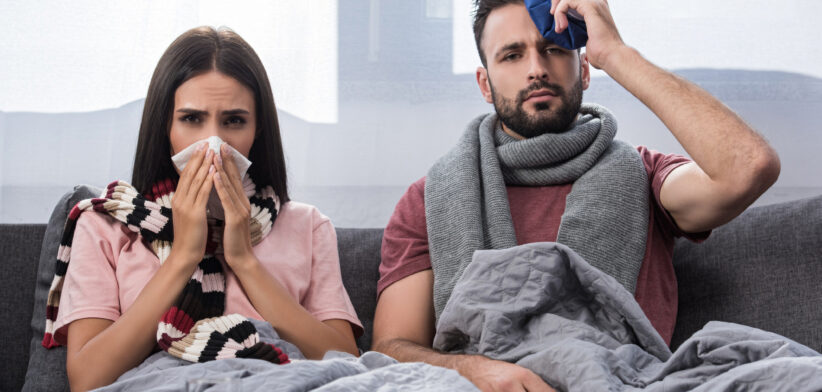Having a bout of COVID has been found to help train the body to fight off other diseases.
Rockefeller University scientists said the body developed a kind of “memory” after COVID that allowed it to mount a better defence against unrelated viruses.
“Immune memory is critical to fending off recurring diseases caused by pathogens,” study first author Alexander Lercher said.
“What’s exciting about our study is that we’ve discovered a broadly effective antiviral immune memory in macrophages following SARS-CoV-2 infection that can reduce disease caused by a completely different virus.”
The researchers said a more detailed understanding of these mechanisms could help in the development of new therapeutic strategies to fight a range of respiratory viruses.
The study findings were based on infecting mice with SARS-CoV-2 and then influenza A virus. Mice that recovered from COVID were found to have a “protective effect” against the worst effects of the flu.
Mr Lercher said, in the future, researchers wanted to identify the critical factors for establishing innate immune memory to help combat pandemics.
“If there were a new emerging pathogen on the horizon, for example, it would be nice to have a therapy that boosted your general antiviral immunity for the next month or so,” he said.
“That’s still very far away, and a lot more research needs to be done, but I think it could be possible one day.”
More details are on the Rockefeller University website.
Another study released this week found people who had been fully vaccinated against COVID-19 had a significantly lower risk of developing severe cardiovascular conditions linked to a COVID-19 infection.
The University of Gothenburg research found, in most cases, there was a reduced risk of cardiovascular events after vaccination, especially after the third dose.
“The risk of cardiovascular events after being fully vaccinated was generally 20-30 percent lower than if no vaccination had been initiated,” the study report said.
“At the same time, the study also confirms the increased risk of inflammation of the cardiac muscle or the pericardium one to two weeks after a single mRNA injection against COVID.
“The study also observed a temporarily increased risk of extrasystoles – additional heartbeats – after dose one (17 percent higher risk) and dose two (22 percent higher risk), and this was stronger among elderly and males. There was no increased risk of other serious cardiac arrhythmias after being vaccinated.”








